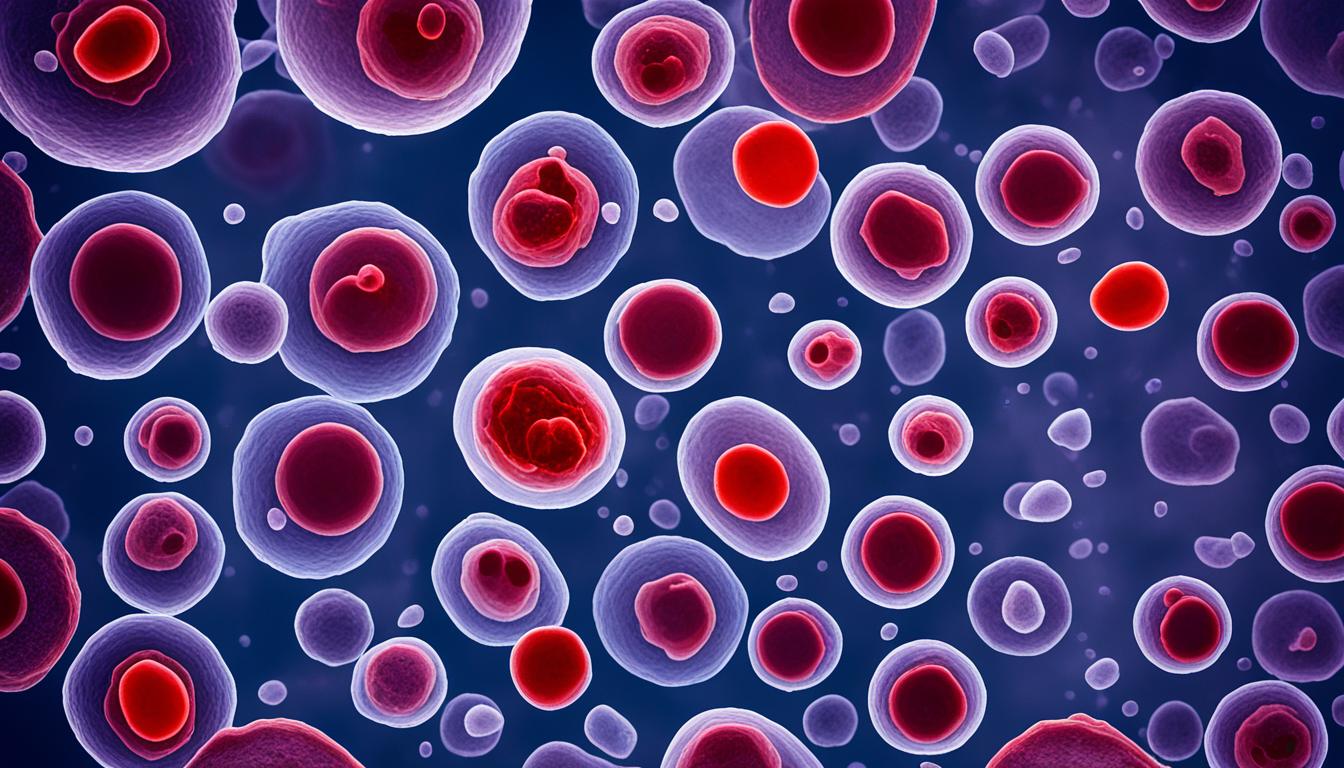Chronic lymphocytic leukemia (CLL) is a cancer affecting the blood and bone marrow. It is defined by the increase of abnormal lymphocytes, a form of white blood cell. They gather in the blood and lymph nodes.
Compared to other leukemias, CLL advances slowly. It usually happens in older adults.
CLL might show no signs at first. But, as it develops, you might notice large lymph nodes, feel tired, run a fever, lose weight, sweat at night, and catch infections often.
The cause of CLL is not fully understood. It may be related to mutations in the DNA of cells that make blood. Certain things can increase your risk, like getting older, being white, having a family history of blood cancers, contact with certain chemicals, and having monoclonal B-cell lymphocytosis.
Doctors treat CLL with techniques such as chemotherapy, targeted therapy, and immunotherapy. Stem cell therapy is a method that can also be used. It involves ending the diseased bone marrow and letting healthy stem cells take over. This helps the immune system recover.
Key Takeaways:
- CLL is a slow-progressing type of cancer that affects the blood and bone marrow.
- Common symptoms of CLL include enlarged lymph nodes, fatigue, fever, weight loss, night sweats, and frequent infections.
- The exact cause of CLL is unknown, but it is believed to be linked to mutations in the DNA of blood-producing cells.
- Treatment options for CLL may include chemotherapy, targeted therapy, immunotherapy, and stem cell therapy.
- Stem cell therapy, or hematopoietic cell transplantation, involves replacing diseased bone marrow with healthy stem cells to restore the immune system.
Symptoms and Complications of CLL
Chronic lymphocytic leukemia (CLL) is often found in routine blood tests. Many people don’t show symptoms early on. However, as CLL gets worse, symptoms and issues start to appear.
Symptoms of CLL
CLL signs can differ from person to person. But, some common ones are:
- Enlarged lymph nodes
- Fatigue
- Fever
- Weight loss
- Night sweats
- Frequent infections
These signs can really change how a person lives. And, they might need medical help.
Complications of CLL
CLL can cause different problems, like:
- Frequent infections: The weak immune system in CLL patients makes infections common.
- Transformation into diffuse large B-cell lymphoma: Sometimes, CLL changes into a more aggressive cancer, known as diffuse large B-cell lymphoma.
- Increased risk of other cancers: CLL patients have a bigger chance of getting different cancers, like skin, lung, and digestive tract cancers.
- Autoimmune disorders: CLL can cause problems in the immune system. This may lead to issues like the body attacking its healthy cells.
Dealing with these issues might include special therapies and treatments. Staying on top of complications is very important for CLL patients.
Diagnosis and Prognosis of CLL
Doctors diagnose CLL by doing blood tests and checking the blood. Tests like a complete blood count (CBC) and flow cytometry look at the blood cells and see how many abnormal lymphocytes there are. They might also do more tests like FISH, gene mutation, and serum immunoglobulin tests.
How CLL will go for a person depends on many things. This includes changes in certain genes, how much the bone marrow is affected, and the counts of red blood cells and platelets. The health of the person, how old they are, and how they react to treatment are also big factors.
Treating CLL depends on the person’s blood cell counts, the size of their lymph nodes and organs, and if they have symptoms. It’s important for those with CLL to talk to their doctor about their options. Joining clinical trials is also a way to get new treatments.

